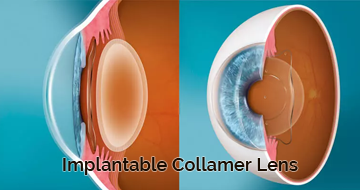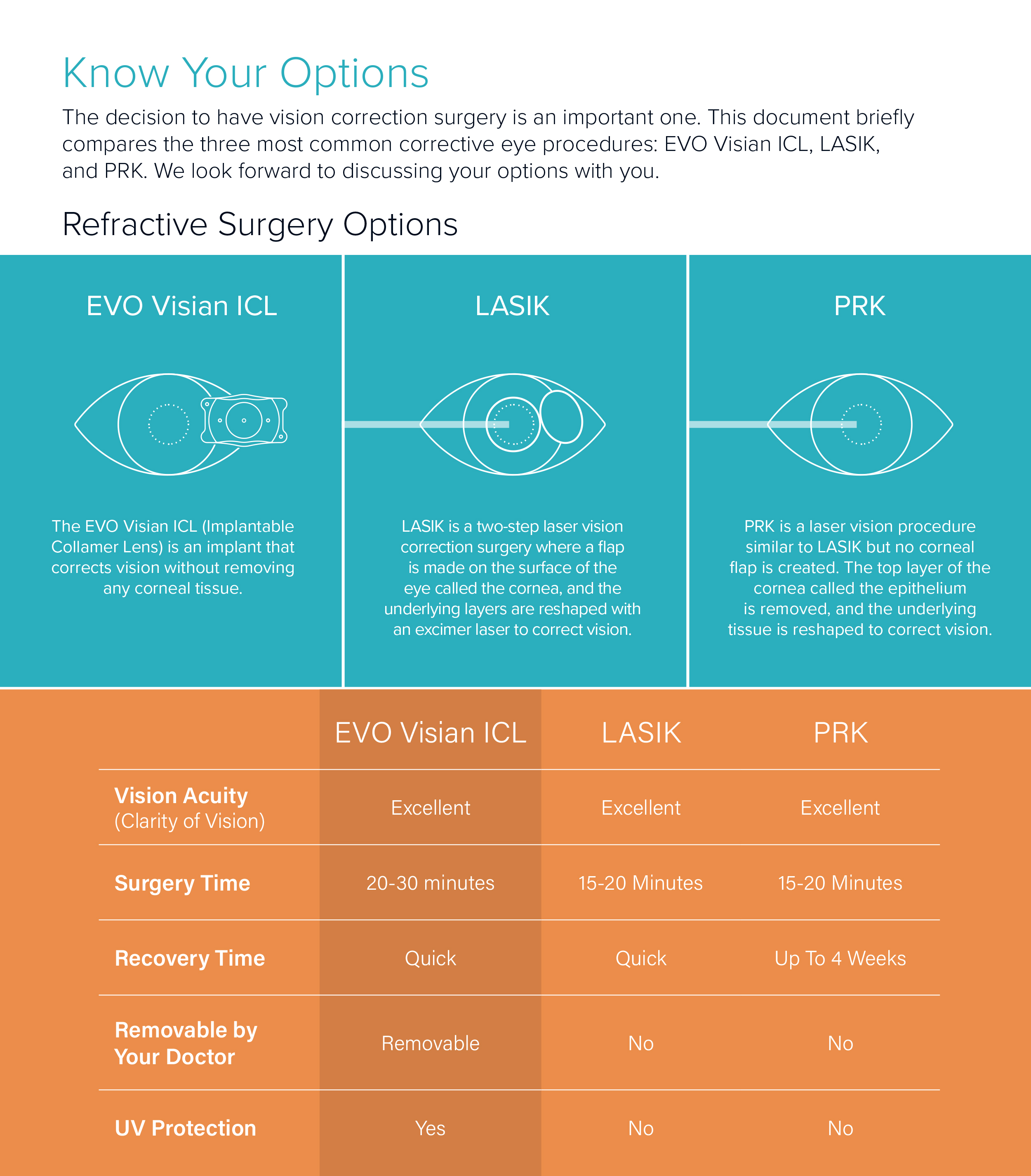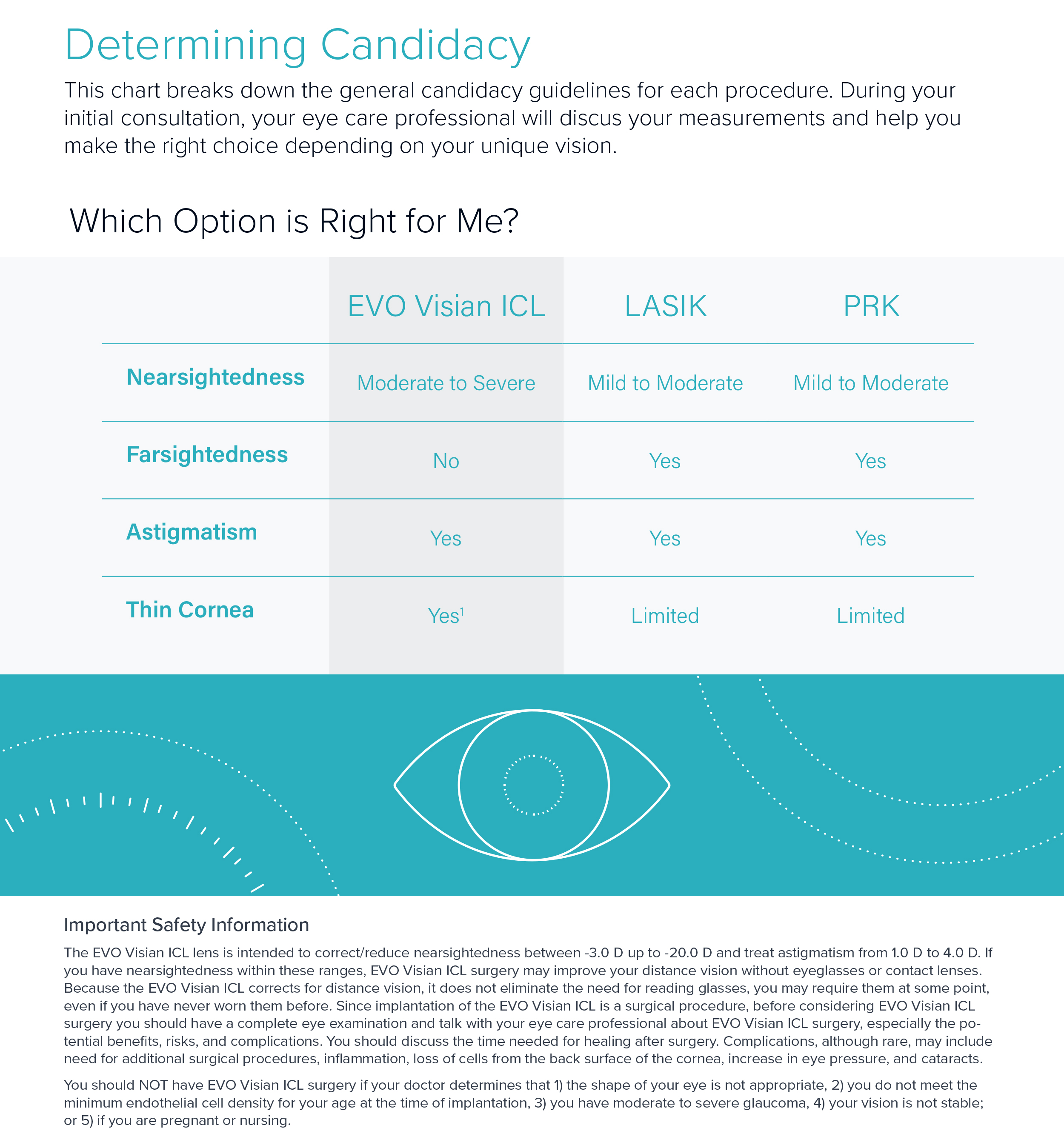
IMPLANTABLE COLLAMER LENS
The ICL or Implantable Collamer Lens is a new intraocular lens that can be implanted into the eye without removing the natural lens. This lens is made from a material called Collamer, a collagen co-polymer , hence it is stable and biocompatible.
The ICL can treat both short-sightedness (myopia) and astigmatism – a common vision condition that causes blurred vision . For short-sightedness, the ICL can be used in patients with -0.50 to -18.00 D. For astigmatism, the lens can treat patients with -0.25 to -6.00 D.
ICL is a small, foldable lens that is implanted in the eye in front of the natural lens through a microscopic incision that needs no stitches. It does not alter the natural shape and curvature of the cornea. Whereas in LASIK surgery the vision correction is done by reshaping the cornea by an ultra-precise laser.
The ICL is an alternative for LASIK for those patients who are not suitable for LASIK due to thin cornea where laser procedure is not safe.
As with any eye surgery there are certain risks to ICL implantation, but its important to weigh them against the benefits to determine if this surgery is right for you. However, complications after ICL surgery are rare.
Usually side effects are minimal. Patients experience some temporary blurring for few days and can also expect increased light sensitivity for a few weeks. Some patients may experience halos or rings around lights and glare at night. These effects usually go away over time.
The surgical procedure is done in OPD basis and usually takes about 15- 20 minutes. You need to be at the surgery center 2-3 hrs to accommodate the pre-op preparation and postop recovery.
No. Patients usually experience virtually no discomfort during the procedure. It is usually done under topical anaesthesia i.e. eye drop to numb the eye. Mild discomfort for the first 24 hours is typical.
Usually one eye is treated first followed by the other. But if anyone wants both eyes to be treated in the same sitting, it can be also done easily.
You will be given a plastic shield to wear immediately after surgery and for the next five nights to protect your eyes while sleeping. For the first month you should be cautious to not touch your eye for any reason and patients should avoid getting sweat, dust or smoke in their eyes. You can go back to your work after five days.
Usually glasses are not required after this procedure but if you have higher degree of myopia then this procedure can be used to reduce the amount of refractive error distorting your vision. Then you can use light prescriptions of glasses or LASIK to correct the rest.
Patients who are pregnant and nursing and patients with a narrow angle in the front chamber of their eye, because in this case the space for the ICL lens would be too small. Hence in these patients ICL is not advisable.
Since a biocompatible lens is implanted inside the eye without affecting the health of the cornea and its nerves, it does not cause any dry eye disease.
Since the lens is biocompatible with the tissues, it can remain inside the eye for indefinite period, unless vision changes.
Cataract formation at an advanced age is the most common reason for ICL removal. Usually it is removed at the time of cataract surgery. Other condition, although rare where ICL removal is indicated is an elevated intraocular pressure not responding to topical medications.

